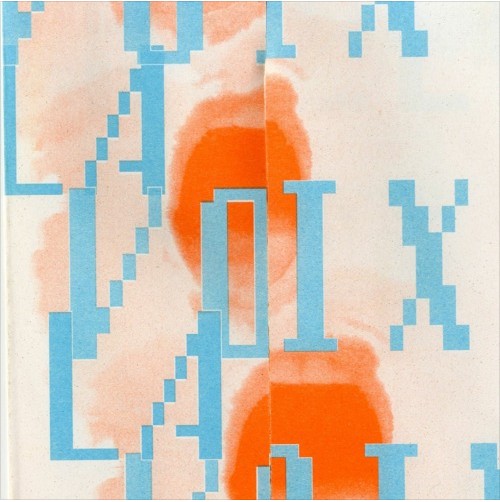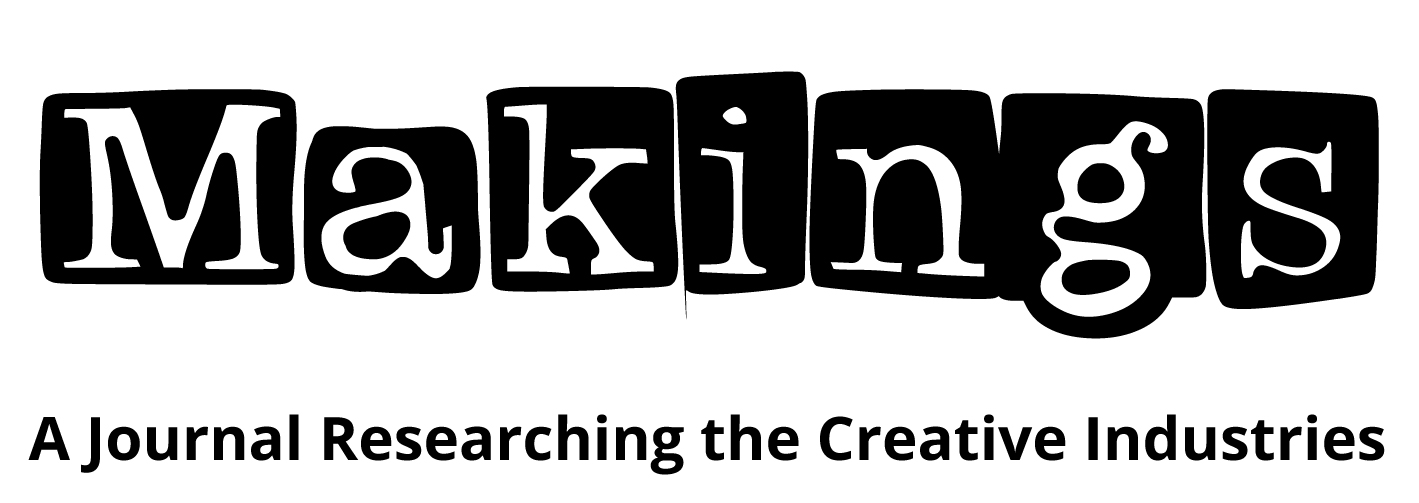
Sounding Together | Podcast
Roshni Bhagotra
Email: r.bhagotra@arts.ac.uk
Context
Through the format of broadcast, this podcast, accompanied by a contextual think piece, questions themes surrounding community, DIY methodology and sound practice.
Sounding Together features audio recordings and conversation excerpts, sharing discourse and interviews taken from educational podcasts created in collaboration with students, staff and recent graduates at Camberwell, Chelsea and Wimbledon Colleges (CCW), part of the University of the Arts London.
All podcast excerpts were developed within a student centred education project aiming to explore and disseminate podcast and sound pedagogies through sonic practice. Pedagogy and curriculum are reimagined in tandem with the community oriented approach of practice based digital radio station and artwork; Rounded Radio. This online listening platform was created in 2015 by Roshni Bhagotra, who is an artist and arts educator.
Sonic dematerialisation
Feeling part of a community has proven to be a fundamental aspect of our social experience in online and offline environments. Notions of camaraderie and reconsidered creative landscapes fuel a seemingly utopian online learning experience.
Upon listening to everyday sounds of footsteps, groups of chatter, echoes in stairwells, workshop machinery, the silence in the library and music in the canteen, a sonic environment re-emerged following the upheaval of a seemingly necessary digital refuge.
We listen through a voice activated exchange where conversation is transmitted through a dematerialised open form of access. The recorded word in this podcast provides a sounding score, as a trace to revisit by actively listening. Something that is possible individually and collectively. Is active listening entirely dependent on environmental concerns? Does this decision guide or lead this activity in our experience?
We question democratic and sustainable approaches to inclusive pedagogy and we examine the cultural relevance, social desire, intimacy and necessity of listening experiences amongst mixed level student cohorts.
The role of the archive in this project transfers the ownership of the transmission of knowledge and understanding to a collective set of shared values. These values were developed with support from the students and created a shared sense of responsibility and community around an online afterlife.
Student participation took the form of a rotation of collaborators, presenters and creators of content which ensured an autonomous contribution to the online space. Our combined and shared experiences fuelled a motivated determination, working through the challenges and successes we encountered. The cyclical nature of the higher education timeline found that the release of podcasts swiftly took on a certain nostalgia in presenting an account of the not-too-distant past.
The reprisal of sound has left a dent in the IP address of everyone who tries to understand the disconnected words of a bad internet connection. Separated by channels, cameras turned off and mics on mute, communities and groups of people become conscious of each other whilst listening alone and also together in active public spaces, carving out a soundless and sounding space.
Focusing on sound as the catalyst to build dialogue and engage with new and existing communities, sounding together supported a bridge between physical and online space. Technology specific mediums transmit through and around entities and listeners, whilst embodying a sensory awareness of the benefits of sonic practice and notions of broadcast in education.
Repetition, rewinding and rebirth of a single conversation or idea resonates alongside computer generated voices created by text to speech software. Pace and dictation may be a key signifier, but the sonic identity is a welcome participant, particularly following a noiseless lockdown.
Response
From a design perspective, the sequencing and format of sounds used on Rounded Radio’s live shows supported the seemingly unlimited options for sonic presence in education. Influencing a community oriented approach, providing space for a creative and critical means of hybrid engagement in the classroom. This feels entirely necessary, particularly when considering alternate approaches to creative pedagogy in higher education following a post covid landscape. We quickly realised that the way the sound was presented, listened to or heard could embody the topics we aimed to highlight, as introduced in the podcast presenting interactions with computer generated voices.
Supported by the tension between the dematerialisation of practice and the reliance on physical technology to create a sustainable listening platform, Rounded Radio utilises the live experience of listening, to lead way to a space that guides materiality and sensation into online and offline realms. Bound by technology to provide a space of comfort for the collective and individual, the essence of recordings are captured in sync together.
Our shared experiences and collective feelings of excitement and nervousness whilst recording our voices live fuels the presence captured in the podcasts. Negotiating physical space became as important as the means by which we were bound to technology. Sharing this space in person and face to face in a mutual setting provided further purpose and meaning to the act of conversational exchange. Sharing opinions and space became a common decipher for clarity and affirmation of the projects needs and the authenticity of our vocal exchanges.
Although the podcast series was a clear outlet for self-expression, conversation, deliberation and affirmation, the space these recordings were privy to was an equally important factor of the entire learning journey. As our social education spaces were transported from within our homes during the pandemic to the outdoors, to public transport and more recently back onsite to college buildings, studio spaces and recording booths, the need for public and private spaces became ever more necessary.
I realise the focus on the transmission of knowledge feels somewhat arbitrary when considering the wider impact the process of the project had on the group, however there is something in the sharing of knowledge and ideas that has been supportive to both this audio education project and Rounded Radio in building a sense of shared ideals.
As a result, the amplification of individual and collective voices highlights the importance of story sharing in this context and the environment ‘listening’ provides when experiencing a preserved transmission created for the future, during the past, in real time.
Above all, capturing audio in this way is more than capturing a live conversation and transferring it into something digital. Through translating a specific part of the learning journey with this approach we encompass the successes, challenges, positives, negatives and limits of learning through sound.
This podcast features conversation with:
- Beatriz De Mendes Costa (BA Drawing student)
- Genevieve Brothwood (MA Graphic Design Communication student and alumni)
- Roberto Chiurazzi (Creative computing diploma at CCW, LCC sound arts student)
- Bessie Chung (BA Fine Art student)
- Li Peng (Katie) (MA Painting student)
- Roshni Bhagotra (artist, podcast host and educator)
Links:
- Bhagotra, R (2015, March). Rounded Radio [Digital radio station and artwork] https://www.roundedradio.com
- Archive Link to Sonic Stimulus, a live radio show that was part of the project discussed in the podcast, which further explores podcasting, sound and voice in education: https://www.mixcloud.com/roundedradio/sonic-stimulus-8th-june-2022/
Roshni Bhagotra is an artist and arts educator working within digital education at Camberwell, Chelsea and Wimbledon colleges, part of the University of the Arts London. Strands of her research and creative practice inform each other through the mediums of sound, broadcast and radio. Roshni created Rounded Radio in 2015, which is an online listening platform and independent digital radio station broadcasting a range of arts and educational radio shows within the UK and internationally, with a focus on challenging and exploring listening experiences.
